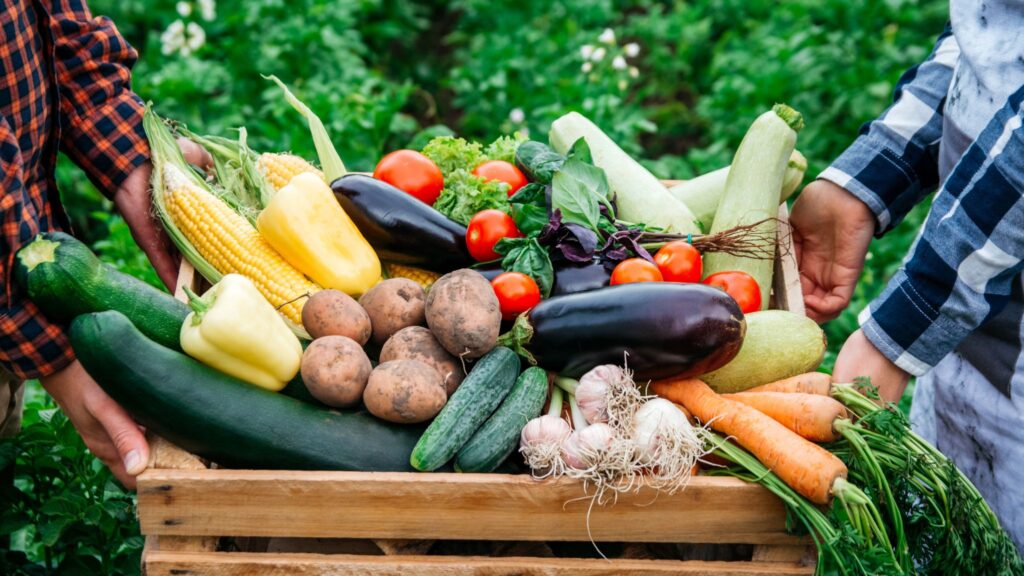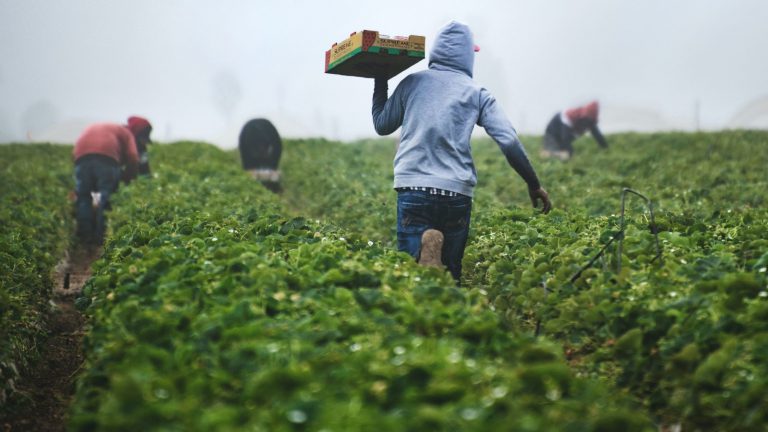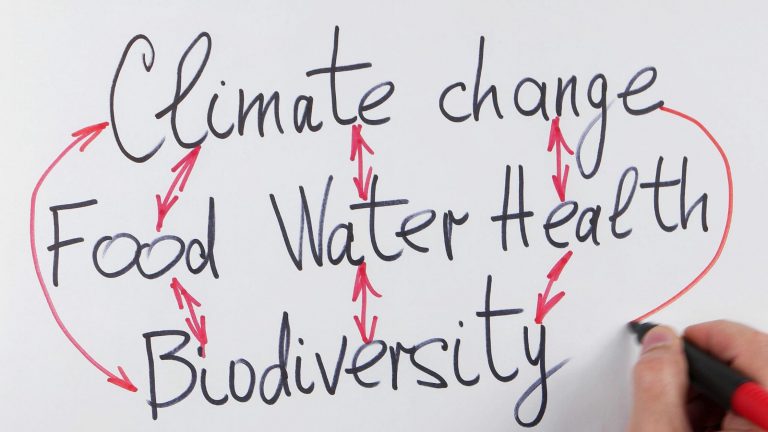As the UK looks ahead to the next election, food and farming policy has emerged as a critical issue. How we grow, process, distribute, and consume food has far-reaching impacts. Our current food system faces significant challenges, from environmental degradation and climate change to health inequalities and food insecurity. To address these complex and interconnected problems, we need a comprehensive, cross-cutting approach that prioritises sustainability, health, and equity: a food systems manifesto.

With food and farming organisations developing their policy proposals for the next government, and the well-evidenced and independent 2021 National Food Strategy (the first in 75 years!) to draw inspiration from, the resources and opportunity are here to stake a claim on the future of the UK food system.
In a recent article, I explained why we need a systems approach to food policy, highlighting some of the steps taken in other countries and the UK’s devolved administrations. I also noted some policies that could make a difference nationally. This article presents a more comprehensive manifesto for a better food system in the UK—spanning the entire food system, from farm to fork. This manifesto is designed to:
- Prioritise sustainable and resilient farming practices and land use, promoting food production methods that increase domestic production, protect the environment and support communities.
- Ensure access to healthy and affordable food for all, focusing on support for children and low-income families.
- Create food environments that encourage healthy and sustainable choices through measures such as public sector procurement standards and restrictions on unhealthy food advertising.
- Establish transparent, fair and integrated approaches throughout the food system that facilitate holistic, informed, and cross-cutting decision-making on the many issues affecting food and farming.
This is what is needed to create a resilient food system that benefits people and the planet.
What’s essential for transformation?
A “good food system” nourishes people, respects the environment, and supports thriving communities. To achieve this vision in the UK, we must fundamentally transform how we produce, distribute, and consume food. The following policy proposals address the most pressing challenges facing our food system, from the need for sustainable farming practices and land use to the importance of promoting healthy diets and ensuring a fair and resilient food industry. By embracing these policies, we can set the UK on a path towards a food system that delivers multiple benefits for society and the environment.
Prioritise sustainable and resilient farming and land use
Sustainable farming and land use practices are the foundation of a resilient and environmentally friendly food system. We must prioritise policies that support sustainable farming, protect and enhance our land resources, and boost domestic food production.
Support diverse, sustainable farming practices: The UK needs to invest much more in transitioning to farming systems that protect soil health, enhance biodiversity, and reduce reliance on harmful inputs. This includes supporting agroecological, regenerative, and organic practices. Government should set ambitious targets for nature restoration, woodland creation, and agroforestry, as well as provide financial incentives for farmers to deliver public goods like clean water and thriving wildlife. A just transition that supports and empowers farmers and agricultural workers through training, financial assistance and opportunities for diversification is critical to the process.
Create a multifunctional land use framework: Government plans—for everything from building new homes to biodiversity enhancement—will require additional land by 2050, an area estimated at twice the size of Wales. Traditional land use planning might separate housing, agriculture, and conservation, but a well-designed multifunctional land use framework aims to balance these needs effectively. It can work to ensure that farming and land management practices align with climate, nature, and nutrition goals, guiding decision-making to harmonise land-use demands and promote sustainability.
Develop a horticulture strategy: The UK imports about half of its food from overseas, including nearly half of its vegetables and most of its fruit. Investing in domestic horticulture will boost the UK’s ability to grow more fruits and vegetables, reducing reliance on imports. Strategies to support sustainable horticulture benefit our health and the environment by encouraging the production of fresh, nutritious produce year-round. Domestic production strengthens supply chains, making them more resilient in the face of global disruptions and ensuring access to quality food.
Ensure everyone has access to healthy and affordable food
Accessing healthy and affordable food is a critical determinant of health and well-being. Yet many people in the UK struggle to obtain the nourishment they need due to financial constraints and inadequate support systems. Focusing on children and low-income families, as well as the broader social safety net, the following measures seek to improve public health, reduce disparities, and create a more just food system.
Universal free school meals for all children: No child should face hunger at school. Free school meals improve educational attainment and help children to develop a healthy relationship with food. They may also help reduce inequality. Currently, eligibility is limited by means-testing. The eligibility criteria should be expanded to include every child living in poverty and, ultimately, extended to all children from early childhood education through secondary school (covering children aged 3 to 18). This approach is essential to ensure no child is left behind and everyone receives the nourishment they need to learn and thrive.
Expand the School Fruit and Vegetable scheme and Healthy Start scheme: The School Fruit and Veg scheme should be expanded so that all children attending state-funded primary schools can benefit from free fruit and veg. The Healthy Start allowance—providing vouchers for essentials to low-income families with pregnant women or children under four years old—should increase in line with inflation and be extended to include older children until they are eligible for free school meals. This will ensure access to essential, nutritious food for children and their families during critical stages of development. These measures should be accompanied by initiatives to improve food education to ensure that these efforts lead to longer-lasting dietary improvements.
Account for the cost of healthy diets when setting benefits levels and minimum wage: Healthy food costs more than less-healthy options—about twice as much per calorie. The most deprived fifth of the UK population would need to spend 50% of their disposable income to afford a healthy diet in line with government guidelines. Food prices need to be rebalanced. However, the costs of a healthy and sustainable diet can also be factored into calculating benefits levels and the minimum wage. Enshrining the Right to Food in UK law could further solidify these efforts and guarantee everyone the means to access the nutrition they need.
Create healthy and sustainable food environments
Our food environments—from the food served in our schools and hospitals to the advertising that shapes our choices—deeply affect the ways we buy, prepare, and consume food. Bold action is needed to implement targeted policies that will transform our food environments to serve our health and sustainability goals, instead of fighting them.
Set robust standards for public sector food procurement: Mandatory nutrition and sustainability standards for public sector food procurement could support British farms, local food production, and healthier diets. These standards should be ambitious and wide-reaching, covering schools, hospitals, prisons, and other public institutions. They should include targets for locally sourced produce, limits on processed foods, and support for sustainable farming practices. Updates to the Eatwell Guide, emphasising sustainability, should inform dietary standards. To ensure successful implementation, public institutions should receive adequate support and training for their procurement teams.
Restrict unhealthy food advertising: Children are especially vulnerable to persuasive marketing, but unhealthy food advertising affects everyone. One-third of all food and beverage advertising is for sweets, snack foods, and soft drinks, with fruits and vegetables receiving only 1%. The government has already committed to restrict TV and online food advertising and multi-buy deals on unhealthy foods (e.g. “Buy one get one free”), but has not yet acted. Government should implement these stalled commitments and take additional steps to reduce unhealthy food and drink advertising in public places, such as public transport and outdoor spaces. This could build on leading examples like the Healthier Food Advertising Policy, which banned junk food advertising on public transport in London, reducing sales of unhealthy food and drinks by 7% on average compared to what was predicted before the ban.
Support local food systems: Local food systems need robust support to improve access to healthy and sustainable food. This includes providing targeted funding for food hubs, community kitchens, and cross-sector partnerships to facilitate access for marginalised groups. Local authorities should receive more public health funding, but they have faced real-term cuts instead. They should also be empowered to improve food environments— for example, using planning rules to reduce the number of unhealthy food outlets and restrict unhealthy food advertising.
Establish transparent, fair, and integrated approaches throughout the food system
To create a healthier and more sustainable food system, we must tackle the underlying structures that shape it. This requires greater transparency from food companies, ensuring fair returns for farmers, and integrated governance strategies.
Introduce mandatory public reporting by food companies of sales data on health and sustainability metrics: Public reporting would increase transparency and accountability and empower consumers to make informed choices—and the Food Data Transparency Partnership already provides a mechanism for data sharing. But while many food companies want to be part of the solution to our food system challenges, they need reporting to be mandatory to level the playing field. Furthermore, companies’ calculations of their foods’ calorie data have demonstrated the feasibility of collecting and reporting on additional metrics like sales of foods high in fat, sugar and salt; sales of fruit and vegetables; and food waste. Reporting on health and sustainability metrics would provide valuable insights into the nutritional quality and environmental impact of food production and consumption patterns.
Ensure fair pricing for farmers and fairer contracts between retailers and suppliers: UK supermarkets wield significant power in the food supply chain, often dictating prices and contract terms that disadvantage farmers and smaller producers. The Groceries Code Adjudicator is the UK regulator for relationships between large grocery retailers and their direct suppliers. Expanding the Adjudicator’s powers could help to address not only unfair pricing practices but also unfair contract terms, such as unpredictable order volumes and late payments. Extending its remit to cover the entire supply chain to include manufacturers and all retailers would help to ensure protection for many more suppliers.
Cross-departmental food and farming strategy: Responsibility for food policy in the UK is fragmented across multiple government departments, hindering progress on crucial issues. A cross-departmental food and farming strategy with clear targets—for example, to increase fruit and vegetable consumption, reduce food waste, and support sustainable farming practices—would enable a more coordinated and effective approach.
From vision to action: Building a better food future together
The kinds of changes we need in our food system will not happen through individual choices or industry action alone. Policy is required to create an environment that’s conducive to better food and farming—supporting the people producing our food and nourishing citizens. Furthermore, it’s critical that these policies reflect our food systems’ deep interconnectivity. A strong food systems approach must be integrated, addressing the entire chain of food production and consumption.
This manifesto offers a starting point for the next government as they consider the needed shift in food policy. By building consensus around such policies and working collaboratively, we can pave the way for a more sustainable, healthy, and just food system that benefits all of us in the UK and beyond.
The time for action is now. Join organisations working on food system transformation, support campaigns advocating for these policies, and demand accountability from our government. Together, our collective voice can make food policy a top priority and create real change.
But consensus requires conversation. So I’m curious—if you could add one thing to this manifesto, what would it be?
Come and join the conversation on LinkedIn.
I write about the future of food and the connections between our food systems, the environment and public health. Sign up for my newsletter.
You can also read more here.






